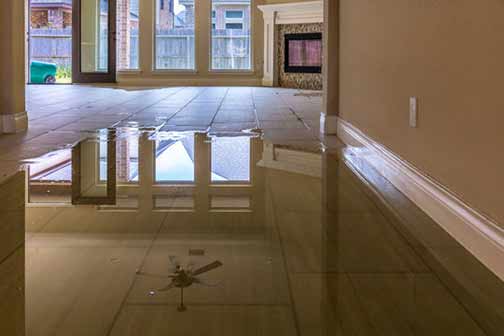
Water damage is the most common and maybe the costliest maintenance issue in American homes. Yearly, billions of dollars are paid out by insurers to homeowners for claims linked to water damage. For some homeowners, water damage is the biggest threat to their home’s value, says Granite Foundation.
What causes water damage in homes?
Most times, the problem is artificial; due to unintentional errors or outright negligence. Other times, water damage results from natural disasters, such as hurricanes. But regardless of its cause, water damage is a problem you can avoid in your home.
How to prevent water damage in your home
Keep an eye on your water bill
An unexplainable spike in your water bill is one of the best ways to detect the presence of hidden water leaks in your plumbing. If the water bill has increased but your water usage pattern is still the same, you may want to inspect the pipes for leaks.
Check appliances regularly for leaks
Appliances are the biggest culprits in in-house water leaks. Old brittle home appliance hoses are a common site for water leaks; dishwashers, ice makers, water heaters, washing machines and refrigerators. These should be checked regularly and replaced often.
Clean gutters and downspouts
Gutter and downspouts clogged with debris encourage the formation of ice dams. They can divert water into the internal structures of the roof or to the walls and foundation. Keep gutters and downspouts clean and in good condition at all times.
Protect water pipes from tree roots
Plant roots – especially the roots of invasive shrubs and trees – can pose a serious threat to underground water pipes and utility lines. Remove or use tree root barriers to prevent contact between tree roots and buried pipes.
Know where your main water shutoff valve is
In an emergency, such as a burst pipe, knowing the location of the main water shutoff valve can make a huge difference. This valve controls the flow of water into your home. Everyone in the house should know where the valve is and how to use it.
Monitor your water pressure
Massive changes in water pressure (low water pressure) often accompany a major leak in your water pipes. High water pressure, on the other hand, can put pipes under enough pressure to burst them or cause appliances to malfunction and leak.
Prompt detection and repair of leaky pipes
Inspecting your water pipes on a schedule and at the first sign of trouble will help you catch new or impending pipe leaks before they become a major issue. Do not delay in replacing weak pipes and pipe joints.
Inspect the roof for damage
Roof problems are the leading cause of water damage in homes. But the issue doesn’t always present as a roofing problem. Water can run along the rafters before showing up in a different location inside the house. This is why you should inspect your roof regularly.
Install water detection devices
These small electronic devices sound an alarm once they sense moisture. Water detection devices keep a close watch on your plumbing, whether you are sleeping, away at work or on vacation. They can be monitored via an app on your phone.
Secure your windows
Windows that don’t close all the way may cause water damage by letting water into your home. You may not notice the problem if water is being diverted inside the drywall. This problem can damage large sections of drywall and insulation in a short time.
Prevent frozen pipes in winter
Pipes will often burst after they freeze. It is hard to predict how your water pipes will behave if you let them freeze. The best way to avoid water damage from burst pipe emergencies is to protect the pipes in your home from cold weather.
Install a French drain or other solutions
If your yard is waterlogged or gets flooded occasionally, you may need to install a French drain or other flood control measure. These solutions help to contain excess water to keep it away from your foundation, basement or crawlspace.
Install a backup sump pump
As long as it is functional, a sump pump is a great solution for preventing basement flooding. But if there is a power outage during a storm, your sump pump will not work. Solve this problem by installing a battery-powered sump pump.
Backwater valve
A backwater valve keeps water or sewage from flowing through the drains, sinks or toilet into your home. This usually happens when heavy rain or flooding compromises the plumbing. A backwater valve can protect your home from this problem.
Is there a serious and persistent problem of water damage in your home? You may need to have your home professionally assessed to help you identify the real causes of the problem. Water damage is a tricky problem that is not always easy to understand.
Instead of the ineffective and costly makeshift solutions you have been using, our experts can assess your home to find out what the real issues are. We can design and deliver a tailor-made solution to fix the problem completely.

